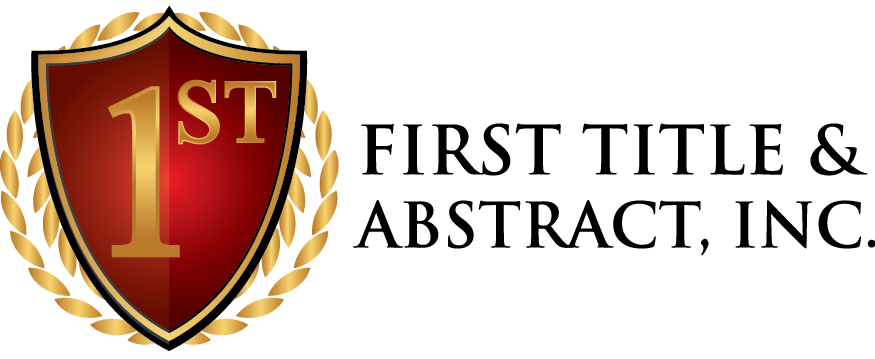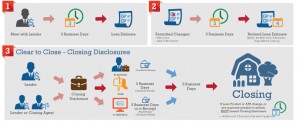
7 Warning Signs You may Not be Ready to Buy
Following up on our popular post from last week, we help you decide if now is a good time to consider buying a home …
From Trulia.com
By Laura Agadoni | August 22, 2016
Owning a home can be a smart financial move, but is it right for you, right now?
It’s happening all across America right now: Hordes of renters, innocently perusing their social media accounts, are noticing a theme. It’s not that everyone is getting married or obsessing over spiralized vegetables — they’re posting pictures of newly purchased homes.
But like your mother always said, just because everyone is doing it doesn’t mean you should — or should you? There are certainly pros and cons of becoming a homeowner, and stumbling across just one dreamy listing of a home for sale in Anaheim, CA, with the perfect open-concept kitchen and fenced-in backyard can leave you thinking about little else. But then you realize you’d rather save your money for a travel adventure, and said dreamy house doesn’t come with the amenities you love at your apartment, like an on-site gym, pool, and doggie day care.
Don’t jump the gun and assume you need to buy a house. Here’s some truth talk: You might not be ready to buy. Pay attention to these seven signs that reveal that even if you think you’re ready to buy a house, you might not be.
1. You don’t make enough money
You might think you make enough money to buy a home, but crunch the numbers first and see what your costs would actually be — a mortgage calculator can come in handy here. You need both upfront and ongoing money, says Roger Ma, a New York, NY agent. “Upfront money includes having enough for the down payment and closing costs and enough left over for an emergency fund,” says Ma. “On an ongoing basis, a buyer’s salary will need to be enough to pay for mortgage interest and principal, HOA fees, homeowners insurance, and taxes.” These costs, according to many financial planners, should be less than 28% of your gross income.
2. You have too much debt
Let’s say you do make enough money to afford to buy a house and make your monthly mortgage payments. You also need to factor in any debt you might have. Hint: If all your credit cards are maxed out, you may want to get those bills under control before entering homeownership. Lenders typically want your total debt load (which includes your potential mortgage payment) to be less than 36% of your gross income. “Take a hard look at your spending habits and change them to improve your chances of being able to support a mortgage,” says Casey Fleming, author of The Loan Guide: How to Get the Best Possible Mortgage.
3. You don’t have enough savings
If you’ve saved enough for the down payment, you’ve made it over one big hurdle. But you need more than just that. What if your home needs an emergency repair? Would you have the money to pay for it, or would a surprise expense put you in debt? “Expect the unexpected,” says Josh Moffitt, president of Silverton Mortgage Specialists in Atlanta, GA. “Your air conditioner may die on a sweltering holiday weekend, or a sewage pipe could burst in the basement.”
And then there are those costs that aren’t necessarily unexpected but that you might not have considered. “Not only does a prospective buyer need money for closing costs and the first few months’ mortgage payments, they also need money for moving costs,” says Brian Davis, a real estate investor and director of education at Spark Rental. “They need money for furnishings and decorating the new house. They need money to pay the property taxes upfront at settlement.” As you can see, you don’t want to drain your savings on just the down payment.
4. You haven’t been on the job long enough
Most mortgage lenders like to see that you’ve been working the same job for at least two years. In fact, they calculate your average income based on your job history for the last 24 months. Being on the job that long shows a certain stability, and changing jobs or having an income gap signals insecurity. “A major job change, such as moving from salary to commission-based pay, may cause your income to fluctuate and can add to uncertainty about your readiness to buy a home,” says Moffitt. “Even if you qualify based on expected income, what if you don’t make that money in your new position?”
5. You have poor (or no) credit
A bad credit score indicates some sort of financial problem, such as skipping out on paying a bill or two, filing for bankruptcy, or carrying too much debt. “Take a close look at your credit report before making a decision to buy,” says Moffitt. “A mortgage lender may have questions about payments, loans, or other debts and may make suggestions that could require time to resolve. If it takes six months to fix, you might not be ready to buy just yet.”
Having little or no credit history can also be problematic. David Hosterman, branch manager with Castle & Cooke Mortgage in Colorado, offers a tip: “We take into account ‘alternative credit trade lines.’ These types of credit are anything from rental history, car insurance, utilities, monthly subscription services, and cellphones. We are looking for a pattern of good credit with those companies for 12 months or longer.”
6. You’re not sure what type of home you want
You might have thought only about buying a single-family home, but you have more options than you might think. For example, you could buy a duplex and earn some rent money by living on one side and renting out the other. Perhaps a condo or townhouse might better suit your needs — and be an easier transition from apartment living. “Each has unique considerations for upkeep and responsibility. It’s hard to say, ‘I’m ready to buy’ without knowing what each type of home has to offer,” says Moffitt.
7. You’re not ready to stick around
Unless you’re pretty sure that you’ll want to stay in the area for the next three to five years, you’re not ready to buy. “If you buy a house and have to sell the next year, you’re likely to lose money because appreciation won’t catch up to the closing costs and postpurchase expenses during that short time,” says Moffitt. If your job is in limbo, or you’re considering moving a few hours away to be closer to family in the near future, it’s wise to hold off on buying a home.
– See more at: http://www.trulia.com/blog/should-i-buy-a-house-7-signs/#sthash.kqB9UVsX.dpuf
Provided to you by your friends at the most established title company in Naples and Marco Island— First Title & Abstract, Inc.





